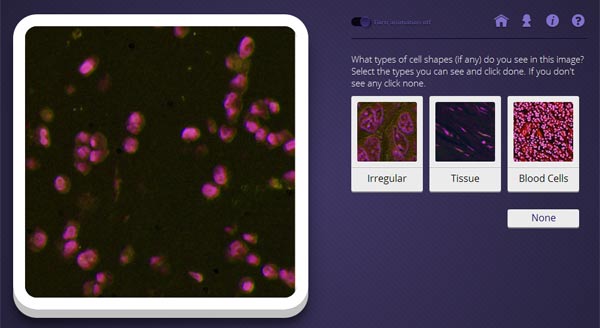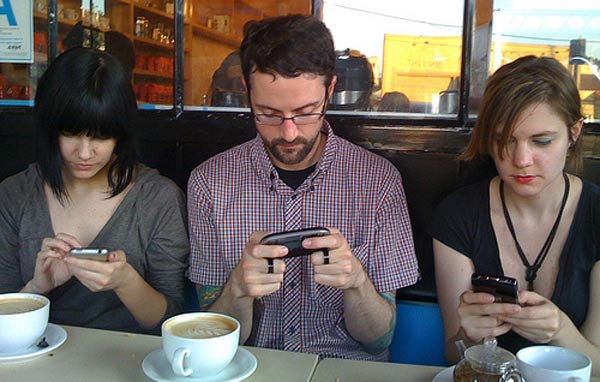Cancer Research UK is developing a new smartphone game to help analyse "terabytes, upon petabytes of genetic data". Some of the data dates back to studies which took place in the 70s, left unanalysed nobody knows if this data contains important nuggets which may point to new treatments for cancer. However the researchers know that "humans are far better at analysing it than an algorithm", according to Cancer Research UK's Amy Carton, speaking to Wired magazine.
Cancer Research UK has previously enlisted "citizen scientists", using a website called Cell Slider, to classify variations in gene data in breast cancer samples. It says that over the last three months the public have analysed 1.6 million classifications via Cell Slider that would have taken scientists about 18 months to do.

Cell Slider
It's pretty important that the game is fun to play as well as feeding back the vital data to Cancer Research UK. A big take up of the game because it is fun and addictive would be much more beneficial than a few people playing it as their way of donating to charity. Scottish games developer Guerilla Tea are tasked with making the game fun. They have previously worked with Cancer Research UK on a hackathon event in collaboration with Facebook, Google and Amazon Web Services. Amy Carton said Guerilla Tea "consulted with [cancer researchers] to make sure the mechanics would lead to the most robust science possible."
It is hoped the smartphone based GeneGame will be able to contribute a lot more to cancer research than its web based predecessor. If you play GeneGame for a couple of minutes "you'll be able to make a difference in the search for cures for cancer," said Carton.

People with smartphones
Carton says that this crowdsourcing mobile game idea isn't being done for the PR, if it turns out it is not a scientifically valid way of doing cancer research "we will ditch it," she says bluntly. Fair enough, but I am crossing my fingers that the imminent proof of concept results from the Cell Slider web project show that the data is useful. This would be a great way for people to use their spare minutes prodding their smartphones, playing "a crucial role in developing new cancer cures sooner - ultimately saving lives".













